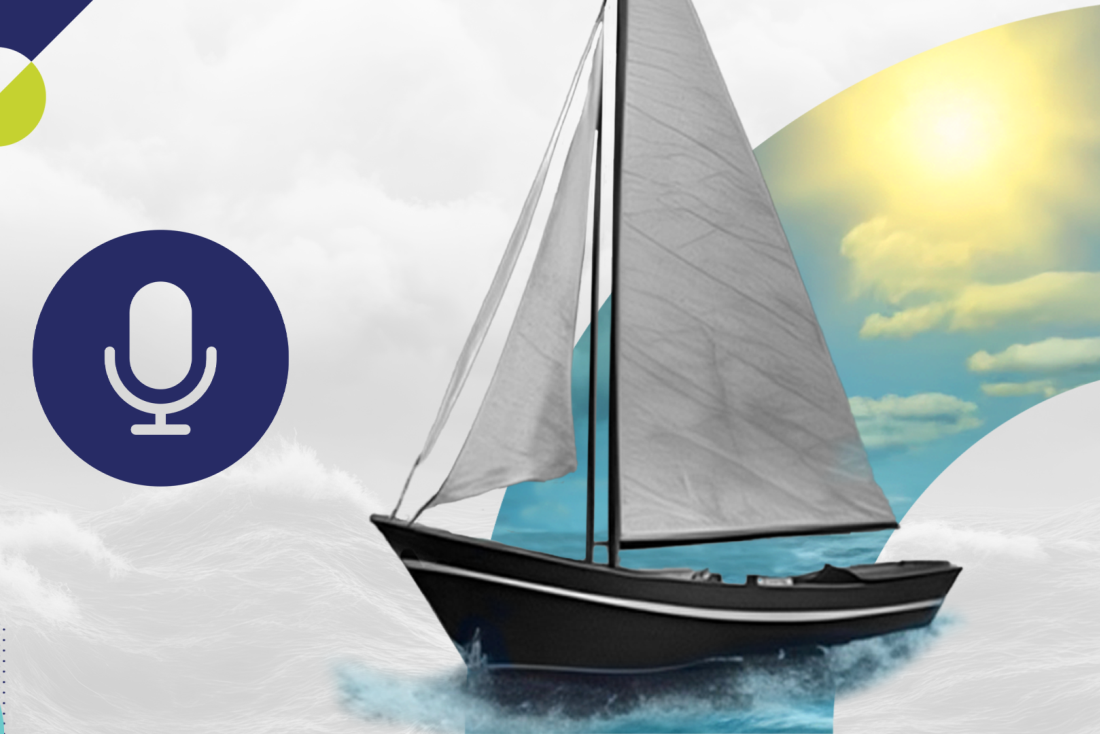Podcast
From Surviving to Thriving: How Strong Brands Navigate Economic Turbulence

From Surviving to Thriving: How Strong Brands Navigate Economic Turbulence
"Brands aren't built in recessions. They're proven in recessions." Amid this growing economic uncertainty, building a recession-proof brand is no longer a theoretical exercise—it’s a business imperative. In this podcast, Taylor, Bo, Charity and Cynthia discuss the importance and ways to help your brand thrive through uncertain economic times.
Table of Contents
- Benefits of Focusing on Branding
- Brand as More than Marketing
- Laying the Groundwork Before Making Brand Changes
- Reinforcing Brand Identity During a Recession
- Building Brand Trust During a Recession
- Avioding Erratic Brand Overcorrections
This transcript has been edited for clarity and readability.
Q: What are the primary benefits for focusing on branding during these times?
Charity Ndisengei: An economic downturn is really a litmus test for any brand's relevance and trust, really. So, when uncertainty dominates the market, people defer to things that feel safe, clear and proven. Especially in B2B because the decisions and the spend is really high stakes and the stakes can be incredibly costly for businesses.
Bo Bothe: And as people pull back, I think that's the challenge. This is a great time to spend on branding. Marketing people and communications people say that, and the reality is that is part of the equation, to Charity's point, is that there's the branding you did before any kind of downturn and what authority does that branding have? Do people even know you?
Then there's the how you handle it when you're in it. I think that those things, whether internal, external hiccups, missteps, things you do, all that stuff affects your brand. And so there's opportunity in it, but it has to be calculated and smart. It depends on what happened before, which is something you should put into your calculus as you decide to go to market or pull back in all cases.
Cynthia Stipeche: I think when looking at how to make your organization and your brand more resilient, it's not a reactionary type of approach. You should be thinking about it at all times and just anticipating that there's ups and downs all the time. So how do you prepare yourself ahead of the downturn?
Taylor Dodds: I'm going to quote our very own Charity here. I heard her say in the office, brands aren't built in recessions, they're proven in recessions. Which I found is an interesting kind of point. Beyond that, Harvard Business Review found out that companies maintaining a steady brand presence during these recessions, grew 275% more during the recovery phase compared to brands who cut aggressively. So it's not only the value for now, but preserving the value where you're going to go when we come.
Q: How is your brand more than just marketing?
Bo: I think sometimes as branding has become more a 'normal' term, not just logo and trademark, people start to understand it's about alignment of strategy and positioning and what our presence is in the marketplace.
When companies hit a downturn, they could just turn up their marketing if they're sitting on a pile of cash and be in great shape.
I think that's one of the challenges that brands are having now because of digital marketing. And the proliferation of brands that are starting to conflate marketing with branding as opposed to brand elements. There's got to be a balance of awareness and brand marketing. Who am I? What do I believe in? Why do I matter to you? And then delivery of that product and service in a way over time that delivers that and then leads me to sales that show up at times that I'm having intention.
Taylor: Being in the digital department, we see that all the time. So funds are down. We want to focus on the bottom of the funnel efforts. Great. Don't disagree with that approach at all, but you can't forget the brand awareness component. But, is someone going to trust you being able to do what you say you can do? Leaving out the brand part does hamper our digital campaigns.
Charity: I mean, I would hazard it to say that it's beyond just service too, even when it's, remember the majority of our people are B2B, so the products that they buy are really high stakes that expenditure needs to add to the bottom line. Is it absolutely imperative? And if I make that expenditure, it needs to be with a brand that I know is going to deliver because it's high stakes.
There's got to be a balance of awareness and brand marketing, especially during uncertain times.
Q: Do you need to lay the groundwork for a focus on branding before starting to change things?
Bo: That is a strategic change that needs to happen. That branding, being attuned to your brand, can send you signals about what might need to change in your strategy, but you have to change.
So the groundwork of strategy, focus and really kind of honing in on your customer. We saw this out of the pandemic. Consumer behavior has completely changed. People got used to clicking buttons and buying shoes and underwear online during the pandemic. Now, if they're buying million dollar oil field tools and multimillion dollar things and their expectations have changed. That changes the business fundamentally, that changes the business strategy fundamentally, not just the brand. It can't just become a marketing campaign.
Charity: You need to know who you're talking to, what they're worried about, what your value proposition is, map that all out and that stuff that you do prior to a recession. You need to be clear on what your brand is, you can't improvise brand clarity.
Cynthia: Whenever we work on branding organizations, developing brands or rebrands, we always look at the audience and not just the general target audience. We define them as specific personas and that helps us better understand what their pain points are and how we can really engage with them on a deeper level to help satisfy or answer those questions that they have, which is just as you just said, Charity, it's super important.
Q: How does reinforcing brand identity help safeguard against a recession?
Charity: Your brand identity is the signal of stability. So, if you're the brand that's continually talking about yourself and out there, marketing, advertising, engaging with these audiences at a time where other people are drawing back and not investing in their brand, what happens is that there is mental availability and a space that you end up filling.
Bo: I think that good brands build the purpose of branding. More people buy more stuff at higher prices for longer periods of time. That resilience, there's something emotional in that in some cases it can be financially driven, it can be strategically driven, it can be money driven, but it becomes an imprint.
Cynthia: I think that's back to the point about trust and it's like the importance of important life decisions, an important purchase decision. You want to know that you trust this organization enough to sell it up the food chain to the C-suite.
Q: How do you build brand trust during a recession?
Charity: Deliver what you promise is the first one. Be consistent, not just around the delivery itself, but in what you say. Ensure that you're consistently saying that message across every single channel, but not just that you're delivering it in the customer experience itself. You can't just say it and not actually deliver on it. Transparency is absolutely key. So when things go wrong, especially during a crisis, be transparent about it.
Bo: I think the only addition to that is, as I'm always on, you guys know I'm always on about brand associations. Downturn is a good time. If you want increased buying power, if you want to expand market share, find a brand that you're associated well with and work with them.
Cynthia: I think everybody remembers this and knows it because they're known for it now. It's like Target and the brand partnerships they have with major design designers and something that back in the day, you go to Target to get all your household goods and whatever, and then you're in and out.
But, adding that extra layer in there of a shopping experience with designer brands, and it's that partnership, it rubs off each other, gives the brand the luxury brand feel and extension within that kind of shopping environment. It's great for everyone - for the brand awareness and the brand partnerships.
Q: How do brands be nimble while avoiding the trap of erratic overcorrections during economic uncertainty?
Bo: I think clients and their brands take a chance to strategically think through what their response is to any change in the market environment or in turn, take a breath, and say what's changed? If it's economic and I can't control it, okay, what can I control? If it's a trend and that trend is against what my brand normally stands for, then okay, is this a trend or is this reality moving forward? And if it is, then I have to reassess my business strategy, not just my brand or communication strategy.
We've been looking at AI as disrupting our businesses. We have to look at, and when I say that AI I mean current market trends, the strategy changes that are going on. There's less things to do when a business has got a bunch of craftsmen that want to make a thing. We've been thoughtful, but maybe a little slow in making business changes that it will affect, but we also had brand promises out there that we needed to deliver on over a period of time.
Charity: That just reminded me of, we'll talk about trends. You just reminded me of that book Great by Choice, by Jim Collins. There's a quote in there that talks about resilient brands that don't react to trends, they build enduring habits. So during downturns, consistency really signals strength. What we need to do is be strategically nimble. You pivot, you don't panic.
Want to learn more about how you can build a brand that thrives through economic uncertainty? Check out our Insight article here.




